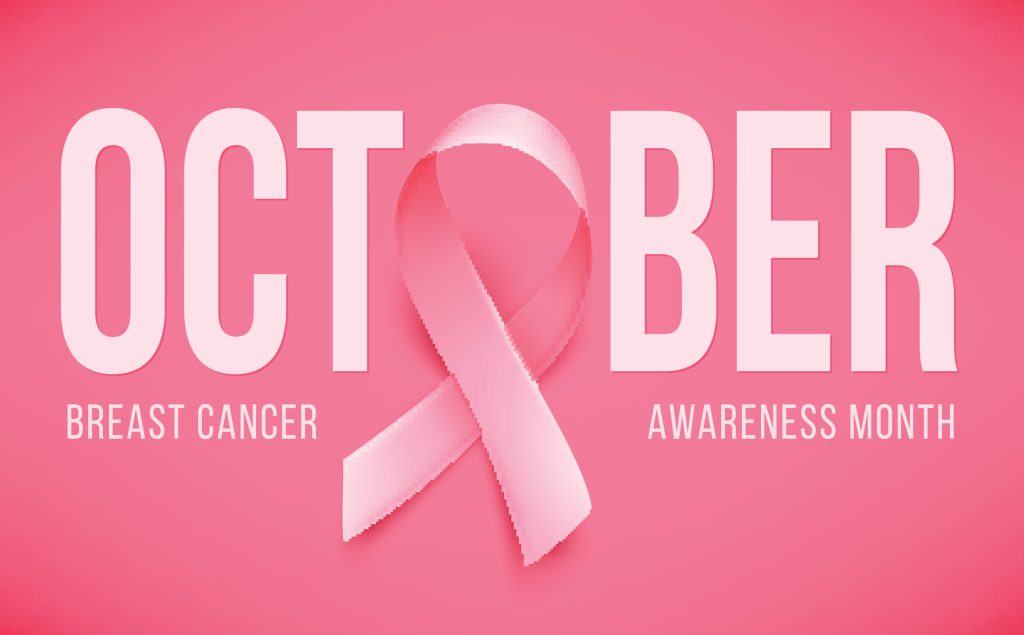Dear Colleagues,

October is Breast Cancer Awareness Month. One in eight women will develop breast cancer in their lifetime. The American Cancer Society estimates that there will be 297,790 new cases of breast cancer diagnosed in women and an estimated 43,170 women will die from this disease in 2023.1 Disparities persist in breast cancer mortality. Black women are more likely to get aggressive cancers at young ages and are 40% more likely to die from breast cancer than White women.1
In this issue of the journal, the authors of the article “Points of pivot: Disparities in breast and gynecologic cancers” describe racial disparities that exist at least in part because of lack of access to screening services and delays in diagnosis and treatment. They provide recommendations to improve care, noting that to make a difference, we must be aware of and address the impact clinician bias and social determinants of health have on patient outcomes.
As of press time for this issue, we are still awaiting the finalized new breast cancer screening recommendation from the United States Preventive Services Task Force (USPSTF). These recommendations are based on a systematic evidence review complemented by collaborative modeling studies to provide information on benefits and harms of screening strategies. In the draft recommendation statement, the USPSTF recommends that all women get screened for breast cancer every other year starting at age 40 to reduce their risk for dying from this disease. This will be a change from the previous recommendation of starting at age 50.2
In response to public comments in May and June of this year, the USPSTF addressed questions about specific guidance for women with dense breasts. Dense breast tissue increases the risk for breast cancer and limits interpretation of mammograms. The USPSTF explains that unfortunately there is not yet enough evidence for them to recommend for or against additional screening and urgently call for more research in this area. They also call for more research to understand how to best address health disparities across screening and treatment.2
Nurse practitioners who provide women’s healthcare have a crucial role in leading evidence-based initiatives in clinical practice that can improve breast cancer screening, identification of individuals at increased risk for breast cancer, and provision of counseling and referrals for risk reduction. The author of the DNP projects: Spotlight on practice in the June 2022 journal issue, “Implementing a cancer risk assessment screening tool: Identifying patients at risk for hereditary breast and ovarian cancer syndrome,” demonstrates this type of evidence-based initiative.
There is a need for more evidence on breast cancer screening recommendations for transgender and gender nonconforming individuals. Breast tissue status forms the basis for breast cancer screening recommendations for transgender males. Transgender males who have had reduction mammoplasty or no chest surgery should have breast cancer screening in accordance with recommendations for cisgender females. No reliable evidence exists to guide the screening for transgender males who have a bilateral mastectomy because of uncertainty about the risk for breast cancer in any residual breast tissue.3 Current recommendations for transgender females are based on the number of years of feminizing hormone exposure, breast development, and any significant risk factors for breast cancer.3
Nurse practitioners are crucial in providing breast cancer survivorship care. The author of “Caring for breast cancer survivors in the primary care setting” in the August 2023 journal issue cites that the number of survivors is continuing to grow in the United States, with an estimated 4 million as of January 2022. The author describes our role including surveillance, assessment and management of long-term effects, and health promotion. Finally, in an October 2022 article, the authors of “Breast cancer, aromatase inhibitors, and bone health” describe assessment and management of bone health in women with a history of breast cancer who have been treated with aromatase inhibitors.
As we move through the remainder of 2023 and into 2024, watch for more articles on breast cancer screening and issues related to healthcare for women with significant breast cancer risk.

Beth Kelsey, EdD, APRN, WHNP-BC, FAANP
References
1 Siegel RL, Miller KD, Fuchs HE, Jemal A. Cancer statistics, 2023. CA Cancer J Clin. 2023;73(1):17-48.
2 United States Preventive Services Task Force. Draft recommendation statement breast cancer: screening. May 9, 2023. https://uspreventiveservicestaskforce.org/uspstf/draft-recommendation/breast-cancer-screening-adults#bcsi-recommendation-title-area.
3 American College of Radiology ACR Appropriateness Criteria® Transgender Breast Cancer Screening 2021. https://acsearch.acr.org/docs/3155692/narrative/.

